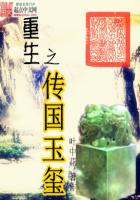Ancient Codes The most celebrated system of jurisprudence known to the world begins, as it ends, with a Code. From the commencement to the close of its history, the expositors of Roman Law consistently employed language which implied that the body of their system rested on the Twelve Decemviral Tables, and therefore on a basis of written law. Except in one particular, no institutions anterior to the Twelve Tables were recognised at Rome. The theoretical descent of Roman jurisprudence from a code, the theoretical aion of English law to immemorial unwritten tradition, were the chief reasons why the development of their system differed from the development of ours. Neither theory corresponded exactly with the facts, but each produced consequences of the utmost importance.
I need hardly say that the publication of the Twelve Tables is not the earliest point at which we can take up the history of law. The ancient Roman code belongs to a class of which almost every civilised nation in the world can show a sample, and which, so far as the Roman and Hellenic worlds were concerned, were largely diffused over them at epochs not widely distant from one another. They appeared under exceedingly similar circumstances, and were produced, to our knowledge, by very similar causes.
Unquestionably, many jural phenomena lie behind these codes and preceded them in point of time. Not a few documentary records exist which profess to give us information concerning the early phenomena of law; but, until philology has effected a complete analysis of the Sanskrit literature, our best sources of knowledge are undoubtedly the Greek Homeric poems, considered of course not as a history of actual occurrences, but as a deion, not wholly idealised, of a state of society known to the writer. However the fancy of the poet may have exaggerated certain features of the heroic age, the prowess of warrior and the potency of gods, there is no reason to believe that it has tampered with moral or metaphysical conceptions which were not yet the subjects of conscious observation; and in this respect the Homeric literature is far more trustworthy than those relatively later documents which pretend to give an account of times similarly early, but which were compiled under philosophical or theological influences. If by any means we can determine the early forms of jural conceptions, they will be invaluable to us. These rudimentary ideas are to the jurist what the primary crusts of the earth are to the geologist. They contain, potentially all the forms in which law has subsequently exhibited itself. The haste or the prejudice which has generally refused them all but the most superficial examination, must bear the blame of the unsatisfactory condition in which we find the science of jurisprudence. The inquiries of the jurist are in truth prosecuted much as inquiry in physic and physiology was prosecuted before observation had taken the place of assumption.
Theories, plausible and comprehensive, but absolutely unverified, such as the Law of Nature or the Social Compact, enjoy a universal preference over sober research into the primitive history of society and law; and they obscure the truth not only by diverting attention from the only quarter in which it can be found, but by that most real and most important influence which, when once entertained and believed in, they are enabled to exercise on the later stages of jurisprudence.
The earliest notions connected with the conception, now so fully developed, of a law or rule of life, are those contained in the Homeric words "Themis" and "Themistes." "Themis," it is well known, appears in the later Greek pantheon as the Goddess of Justice, but this is a modern and much developed idea, and it is in a very different sense that Themis is described in the Iliad as the assessor of Zeus. It is now clearly seen by all trustworthy observer of the primitive condition of mankind that, in the infancy of the race, men could only account for sustained or periodically recurring action by supposing a personal agent.
Thus, the wind blowing was a person and of course a divine person; the sun rising, culminating, and setting was a person and a divine person; the earth yielding her increase was a person and divine. As, then, in the physical world, so in the moral. When a king decided a dispute by a sentence, the judgment was assumed to be the result of direct inspiration. The divine agent, suggesting judicial awards to kings or to gods, the greatest of kings, was Themis. The peculiarity of the conception is brought out by the use of the plural. Themistes, Themises, the plural of Themis, are the awards themselves, divinely dictated to the judge. Kings are spoken of as if they had a store of "Themistes" ready to hand for use; but it must be distinctly understood that they are not laws, but judgments. "Zeus, or the human king on earth," says Mr.
Grote, in his History of Greece, "is not a lawmaker, but a judge." He is provided with Themistes, but, consistently with the belief in their emanation from above, they cannot be supposed to be connected by any thread of principle; they are separate, isolated judgments.
Even in the Homeric poems, we can see that these ideas are transient. Parities of circumstance were probably commoner in the ****** mechanism of ancient society than they are now, and in the succession of similar cases awards are likely to follow and resemble each other. Here we have the germ or rudiment of a Custom, a conception posterior to that of Themistes or judgments.














